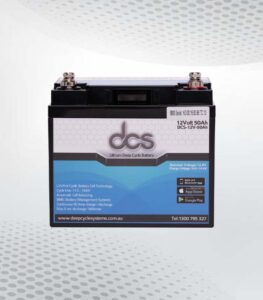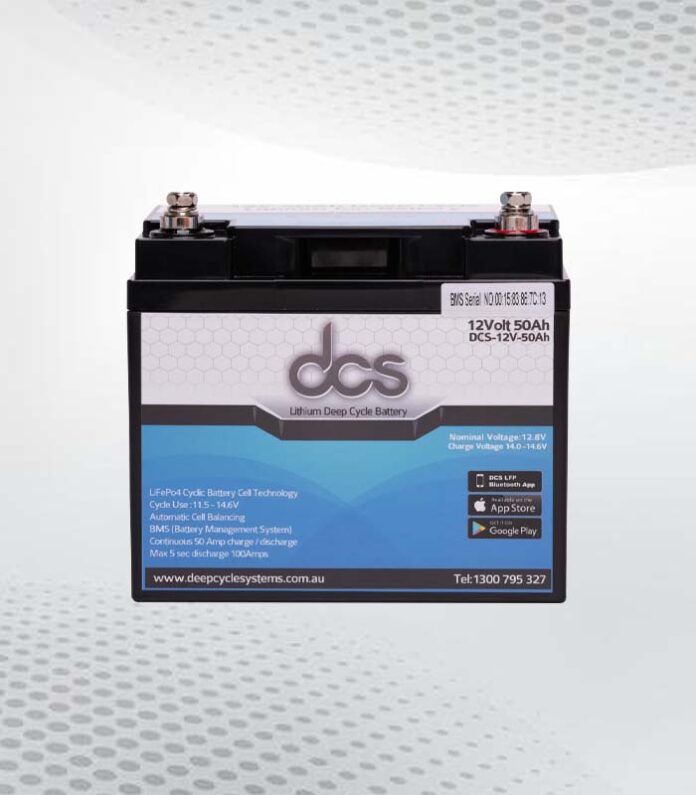Are you looking for a new battery to power your electronic devices or vehicles? If so, you may have encountered the terms “lifepo4” and “LiPo” batteries. These two types of lithium-ion batteries have become increasingly popular for their high energy density, longer lifespan, and faster charging capabilities. However, when it comes to 12V batteries, it can be overwhelming to decide which one best fits your needs. In this blog post, we will break down the differences between lifepo4 and LiPo batteries and help you choose the best Lifepo4 Battery for your lifestyle. So, let’s dive into the world of lithium-ion batteries and find the perfect fit for your power needs!
Understanding Batteries: The Basics of LiFePO4 and LiPo
Lithium-ion batteries have revolutionized the world of portable power, and two popular options are LiFePO4 (Lithium Iron Phosphate) and LiPo (Lithium Polymer) batteries. Let’s start by understanding the basics of these batteries.
LiFePO4 batteries are known for their impressive longevity and safety features. They have a longer lifespan than other lithium-ion batteries, with some models lasting up to 10 years. These batteries also have a higher thermal stability, making them less likely to overheat or catch fire.
On the other hand, LiPo batteries are known for their high energy density, allowing them to store more power in a smaller, lighter package. This makes them a popular choice for applications that require a compact power source, such as drones or remote-controlled vehicles.
Choosing the Right Battery for Your Needs: A Comprehensive Guide
Choosing the right battery for your needs is a crucial decision when it comes to powering your electronic devices or vehicles. With so many options in the market, it can be overwhelming to find the perfect fit. This comprehensive guide will walk you through the factors to consider when choosing a battery, helping you make an informed decision.
- First, assess your power requirements. Consider your specific application’s voltage, capacity, and discharge rate. A higher voltage battery may be required for certain devices or vehicles, while a higher capacity battery will provide a longer runtime.
- Next, consider the size and weight of the battery. A smaller, lighter battery will be more suitable if you’re looking for a portable power source. However, a larger battery may be necessary if you prioritize capacity and runtime.
- Durability and lifespan are also important factors to consider. Look for batteries that withstand harsh conditions, vibrations, and extreme temperatures. Additionally, consider the battery’s expected lifespan and any maintenance requirements it may have.
- Another key consideration is the charging time and efficiency. Some batteries offer faster charging capabilities, allowing you to replenish power when needed quickly. It’s also worth looking into the availability and compatibility of chargers for your specific battery.
Exploring 12V Power: Features & Benefits of a LiPo Battery 12v
When exploring the world of 12V power, a LiPo (Lithium Polymer) battery is a versatile and powerful option. A 12V LiPo battery offers a range of features and benefits that make it a popular choice for various applications.
- One of the key features of a LiPo Battery 12v is its high energy density. This means it can store significant power in a compact and lightweight package, making it ideal for portable devices and vehicles. Whether you’re powering a drone, an RC car, or a camping setup, the high energy density of a LiPo battery ensures that you have a reliable and long-lasting power source.
- Another advantage of a 12V LiPo battery is its ability to deliver consistent power output. Unlike other batteries that experience a voltage drop as they discharge, a LiPo battery maintains a stable voltage throughout its discharge cycle. This means your devices and vehicles will receive a consistent power level, ensuring optimal performance and reliability.
- Furthermore, a 12V LiPo battery is known for its fast charging capabilities. With the right charger, you can quickly replenish the battery’s power, allowing you to return to your adventures or activities in no time. This makes it convenient for those who are always on the go and need their power source to be ready when they are.
Power up Your Adventures with a 12V LiPo Battery
When powering your adventures, a 12V LiPo battery is your best companion. With its high energy density, consistent power output, and fast charging capabilities, a 12V LiPo battery is designed to keep you going, no matter where your adventures take you.
 Whether flying a drone, racing an RC car, or setting up a campsite, a 12V LiPo battery provides a reliable and long-lasting power source; its compact and lightweight design makes it easy to carry, allowing you to explore and discover without being weighed down.
Whether flying a drone, racing an RC car, or setting up a campsite, a 12V LiPo battery provides a reliable and long-lasting power source; its compact and lightweight design makes it easy to carry, allowing you to explore and discover without being weighed down.
Not only does a 12V LiPo battery provide power on demand, but it also ensures optimal performance for your devices and vehicles. With its stable voltage output, you can expect consistent power delivery, allowing your equipment to perform at its best.
Dive Deep into the world of 100ah Deep Cycle Battery
When powering your devices or vehicles, the world of batteries can be complex and overwhelming. One option to consider is the 100ah Deep-Cycle Battery. This type of battery is specifically designed for long-term power storage and usage, making it perfect for applications like recreational vehicles, boats, or solar power systems.
The 100ah Deep-Cycle Battery offers a high capacity of 100 ampere-hours, meaning it can deliver a consistent and reliable power supply for an extended period. This is crucial for activities that require continuous power, such as camping trips or off-grid living. Its deep cycle capability sets the 100ah Deep Cycle Battery apart from other options. Unlike regular batteries designed for short bursts of power, deep-cycle batteries are built to handle frequent and deep discharges without damaging the battery’s overall lifespan.
The 100ah Deep-Cycle Battery is also built to withstand harsh conditions and rough terrains. It is often designed with durable materials and robust construction, ensuring it can handle vibrations, shocks, and extreme temperatures. This makes it ideal for outdoor adventures or off-road vehicles.
Charging LiPo Batteries: Best Practices and Precautions
Charging LiPo batteries correctly is essential to ensure their longevity and safety. Here are some best practices and precautions to follow when charging your LiPo battery:
- Use a LiPo-specific charger: LiPo batteries require chargers designed specifically for them. Using the wrong charger can damage the battery or pose a safety risk.
- Balance charging: LiPo batteries have multiple cells, and it’s important to balance the charge of each cell to prevent overcharging or undercharging. Always use a charger that supports balance charging.
- Monitor the charging process: Keep a close eye on your battery while charging. Avoid leaving it unattended, as overcharging or overheating can occur if not properly monitored.
- Charge in a safe area: Charge your LiPo battery on a fire-resistant surface, away from flammable materials. Consider using a LiPo charging bag or container to contain potential fire hazards.
Battery Care Tips to Maximize Performance and Longevity
Taking care of your battery is essential to maximize its performance and longevity. Here are some tips to help you get the most out of your battery:
Proper charging
Always use a charger specifically designed for your battery type. Avoid overcharging or undercharging, as this can affect the battery’s capacity and lifespan. Follow the manufacturer’s recommendations for charging times and avoid leaving the battery plugged in for extended periods.
Storage
If you’re not using your battery for an extended period, store it in a cool and dry place. Avoid extreme temperatures and make sure the battery is charged to around 50% before storage. Regularly check the battery’s voltage and recharge if necessary to prevent self-discharge.
Avoid deep discharges
While deep cycle batteries can handle frequent deep discharges, it’s still important to avoid discharging the battery below its recommended limit. Deep discharges can significantly reduce the battery’s lifespan. Try to recharge the battery before it reaches the minimum voltage level.
Handle carefully
Avoid dropping or exposing the battery to excessive shock or vibration. These actions can damage the internal components and affect the battery’s performance. If the battery becomes damaged, discontinue use and properly dispose of it according to local regulations.
FAQ’s
Do you still need to decide which LiPo battery best fits your needs? Don’t worry; we’ve got you covered with answers to some of the most frequently asked questions about LiPo batteries.
1. What is the difference between LiPo and LiFePO4 batteries?
LiPo batteries have a higher energy density and are more lightweight, making them ideal for portable devices and vehicles. LiFePO4 batteries, on the other hand, have a longer lifespan and are known for their safety features.
2. Can I use a LiPo Battery 12v for my recreational vehicle?
Yes, a LiPo Battery 12v can power your recreational vehicle. Its high energy density and consistent power output make it perfect for long trips or off-grid adventures.
3. How do I charge a LiPo battery safely?
To charge a LiPo battery safely, use a charger specifically designed for LiPo batteries and follow the manufacturer’s recommended charging times. Avoid overcharging or undercharging, and never leave the battery unattended while charging.
4. Can I use a LiPo battery for my drone or RC car?
Absolutely! LiPo batteries are popular for drones and remote-controlled vehicles due to their high energy density and fast charging capabilities. Just choose the right voltage and capacity for your specific device.
5. Are LiPo batteries environmentally friendly?
LiPo batteries are not considered to be environmentally friendly. They contain chemicals that can be harmful if not disposed of properly. It is important to recycle or dispose of LiPo batteries responsibly to minimize their impact on the environment. The manufacturing process for LiPo batteries involves extracting and processing raw materials, which can also have negative environmental consequences. However, efforts are being made to develop more eco-friendly battery technologies.
Conclusion
We hope you understand these powerful and versatile energy sources better as we conclude our exploration of 12V power and the world of LiPo batteries. Whether you’re looking for a battery for your recreational vehicle, drone, or portable devices, choosing the right LiPo battery is essential. Consider energy density, capacity, durability, and charging capabilities to find the perfect fit for your needs. And remember to follow our battery care and safety tips to maximize the performance and longevity of your Lifepo4 Battery. Power up your adventures confidently and enjoy the freedom and convenience of a 12V LiPo battery!

